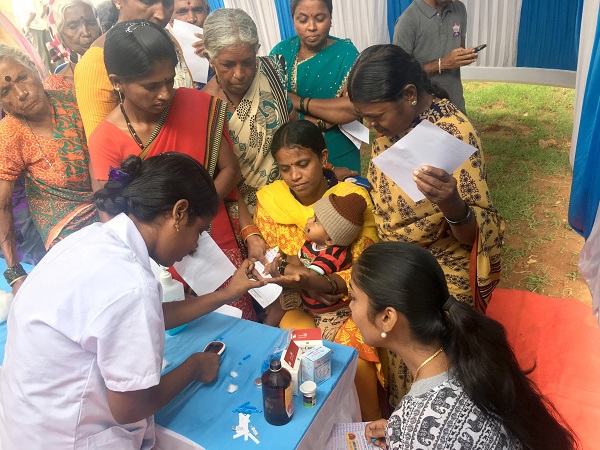Century Pai Foundation Uplifts Channahalli Village in One Year

22 June 2019, Bengaluru, Karnataka, India
Century Pai Foundation adopted Channahalli village near Chikkajala in Karnataka for its flagship Corporate Social Responsibility (CSR) initiative.
Century Pai Foundation adopted Channahalli village near Chikkajala in Karnataka for its flagship Corporate Social Responsibility (CSR) initiative. The 15 month project was planned for holistic development of the entire village, comprising 1200 dwellers and 300 households, through various infrastructural and community interventions. The initiative was executed in 5 phases such as Project Aarohana focusing on education, Project Aarogya on health, Project Hasiru on waste segregation, management and improving green cover in the village, Project Vichaara emphasizing on local governance and Project Shakthi focusing on creating awareness on bank operations and government schemes.
Post completion of the project, there has been a 50% increase in the green cover in and around the village, 97% increase in adult literacy, and 100% bank accounts opened for all households. School dropouts also reduced by 100% over a period of time and 60% of the total villagers benefitted from the two medical check-up camps conducted for general health check-up which was supervised by doctors with various specializations.
Speaking on completion of the project, Ms. Vidya Pai, Trustee, Century Pai Foundation said, “There has been progress in segments of Channahalli due to various planned programmes. The overall infrastructure has seen improvement and many initiatives regarding education, employment, social forestry, clean environment, awareness on health have been successful. We look forward to continue more interventions in the village for another year centered on skilling of the youth in the village to boost employability.”
The CSR initiative began with volunteers from Century Real Estate distributing secondary and digital infrastructure like Kannada medium books for Channahalli Government School for classes 1-8 and children’s toys for Anganwadi. The Foundation also provided digital education aids to the students in Kannada medium like CDs on science, technology and mathematics. A new stage was constructed in the school premises with colourful show plants.
Century Pai Foundation organised “Vigyanothsava”, a first-of-its-kind science exhibition. Different science models of solar system, sensory organs, working models of circuits and lights were showcased to students from surrounding schools, government officials, gram panchayat members and parents. As part of the science exposure, students and teachers also visited Visvesvaraya Industrial and Technological Museum (VITM) and Jawaharlal Nehru Planetarium.
One of the significant measures that saw a favorable response and noteworthy results was adult literacy. 101 adults learned to sign their names out of 144 adults in the village who had minimal knowledge of how to read or write. More women volunteered to educate themselves which in turn helped them to strengthen their self help group record books.
During the 15 month project, two medical camps were organized which saw more than 600 villagers receiving free medical check-up from medical experts. The camp witnessed free medical check-up being undertaken by experts such as orthopedics, gynaecologists, ENT, dermatologists, paediatrists, dentists, opthamologists, and general practitioners. Free medications like multi-vitamins, general medications prescribed by physicians for fever, pain killers, skin lotions, anti-allergic pills, iron and calcium tablets were also distributed to Channahalli villagers by Century Pai Foundation.
As part of creating awareness about nutritional benefits, villagers were encouraged to initiate backyard kitchens. Different varieties of fruits and vegetables seeds like tomato, methi, brinjal and palak were distributed and have been successfully cultivated in all backyards of the households to promote an organic lifestyle. More than 150 trees were planted at various places around the school, village surroundings and houses to improve green cover. The Foundation also distributed two dustbins per household to promote segregation of waste at the source and create awareness on its benefits.
Other important interventions were awareness sessions on responsible parenting, sharing best practices of model schools, and celebrating national holidays like Republic and Independence Days.







